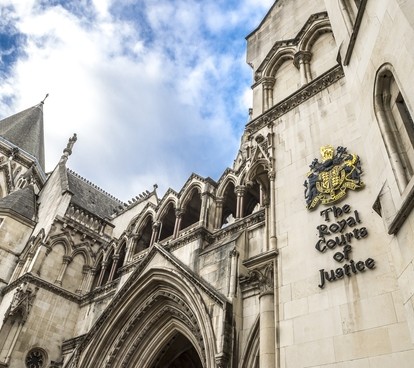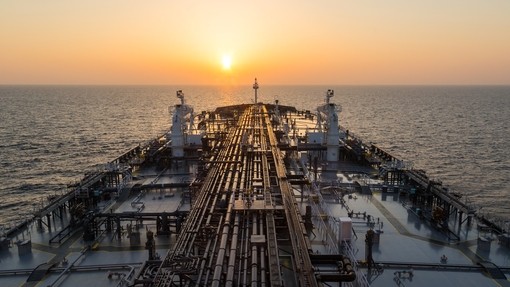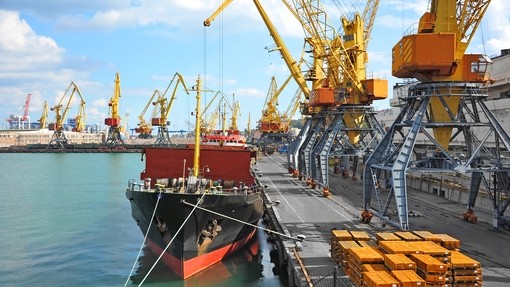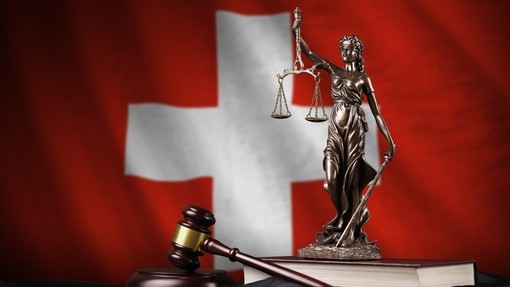Court of Appeal grants final anti-suit injunction in support of arbitration agreement providing for foreign-seated arbitration
UniCredit Bank GmbH -v- RusChemAlliance LLC [2024] EWCA Civ 64

Court of Appeal grants final anti-suit injunction in support of arbitration agreement providing for foreign-seated arbitration
This dispute is noteworthy for the arbitration-related issues it raised, including governing law of the arbitration agreement and the extent of the English Court’s powers to grant an anti-suit injunction in support of arbitration proceedings.
It also highlights how Russian contracting parties are resorting to claims before the Russian courts (under Article 248 of the Russian Arbitrazh Procedural Code (APC)) to ground jurisdiction and to denounce the enforceability of foreign law arbitration agreements or future arbitration awards on the basis that EU sanctions are contrary to Russian public policy.
Executive summary
The Court of Appeal has granted a final anti-suit injunction to restrain the pursuit of Russian court proceedings where the parties’ contracts and arbitration agreements were governed by English law but provided for ICC arbitration in Paris.
This was in circumstances where no arbitration had yet been commenced because the defendant argued the arbitration agreements were unenforceable and was pursuing proceedings in the Russian Arbitrazh Court, and the claimant had no stated intention of commencing arbitration but maintained that any claim the defendant intended to bring should be brought by arbitration in Paris.
In allowing the appeal, the Court of Appeal disagreed with the Commercial Court’s findings that the arbitration agreements were governed by French law as the law of the seat of arbitration and that the English courts were not the appropriate forum. Instead, it held that the arbitration agreements were governed by English law and that England was the forum where the case could more suitably be tried.
The background facts
The defendant was a company incorporated in the Russian Federation that had entered into engineering procurement and construction (EPC) contracts for the construction of LNG and GPP facilities in Russia. The contractors under the EPCs were German companies.
Under the EPCs, the defendant had to pay approximately €10 billion in stages and had made advance payments of about €2 billion to the contractors. The contractors were obliged to provide performance guarantees in the form of on demand bonds. They arranged for some of those bonds to be provided by the claimant German bank (other bonds provided by two other German banks, Deutsche Bank and Commerzbank, are also the subject of similar litigation in the English Court – see below).
The claimant issued seven bonds, four of which were performance guarantees and the remaining three to secure the repayment of the advance payments. The bonds all provided for English law and ICC arbitration in Paris.
Following the Russian invasion of Ukraine and the imposition of EU sanctions on Russia and Russian entities and persons (but not specifically the defendant), the contractors were informed by the relevant German authorities that they could not continue to perform the EPCs. The contractors, therefore, halted performance. The defendant then purported to terminate the EPCs on the grounds of the contractors’ material breach of contractual obligations and sought reimbursement of the advance payments that it had made.
The defendant made claims on the claimant bank for payment under the on demand bonds. The claimant refused to pay under any of the seven bonds on the basis that such payment was prohibited by the EU sanctions. The defendant contended that the sanctions did not afford a valid basis for refusing to pay under the bonds.
Russian proceedings
The defendant did not refer the dispute to ICC arbitration in Paris. Instead, it commenced proceedings in the Russian Arbitrazh Courts, claiming payment of the total value of the bonds of over €443 million. It submitted that the EU sanctions violated Russian public policy and did not, therefore, provide a valid ground for non-payment, further that the arbitration agreements were unenforceable as a matter of Russian law.
Among other things, Article 248.1 of the APC confers exclusive jurisdiction on Russian Arbitrazh Courts over disputes arising from foreign sanctions or involving sanctioned persons. It enables Russian persons affected by foreign sanctions to apply to a Russian Arbitrazh Court for an anti-suit injunction prohibiting the other party from initiating or continuing proceedings before a foreign court or foreign international arbitration tribunal. The Court can also treat an agreement providing for arbitration outside Russia as inoperable and punish a breach of an anti-suit injunction.
On the undisputed evidence, Article 248.1 of the APC has been applied broadly by the Russian courts and there have been a significant number of cases in which Russian courts have assumed jurisdiction and issued anti-suit injunctions prohibiting foreign court or international arbitration proceedings.
In this case, the Arbitrazh Court of St. Petersburg and Leningrad Region held that it had exclusive jurisdiction over the defendant’s claims on the bonds and that the arbitration agreements which they contain could not be performed. Nonetheless, it suspended its proceedings on the merits of the defendant’s claims pending the outcome of the appeal in the English Court.
The Commercial Court decision
The claimant obtained an interim anti-suit injunction from the English Court to restrain pursuit of the Russian proceedings. The defendant then challenged the English Court’s jurisdiction.
The Commercial Court decided that it did not have jurisdiction because the arbitration agreement was governed by French law, not English law. In its view, as French law was the law of the seat of arbitration, it should also be treated as the law of the arbitration agreement.
The Commercial Court also decided that France was the more appropriate forum because it was the seat of the arbitration. If arbitration was commenced, the French Court would have supervisory jurisdiction over that arbitration. Even though an anti-suit injunction would not be available in the French Court, nonetheless substantial justice could be done in France because the French Court could award damages.
As a result of this decision, the Commercial Court did not need to consider whether a final injunction should be granted.
The Court of Appeal decision
The Court of Appeal allowed the appeal and granted a final mandatory anti-suit injunction.
Governing law of the arbitration agreements
The principles for ascertaining the governing law of an arbitration agreement had been authoritatively established by the majority of the Supreme Court in Enka Insaat Ve Sanayi AS -v- OOO Insurance Company Chubb [2020] UKSC 38.
The general rule, where the main contract was expressly governed by English law, and the arbitration agreement contained within that contract provided for arbitration with a foreign seat but did not expressly provide for a governing law of the arbitration agreement, was that the parties were taken to have made a choice of English law as the law applicable to the arbitration agreement.
The Commercial Court had decided that this general rule was displaced because the contracts provided for the law of the seat to be French law and so the arbitration agreements should also be treated as governed by French law. In the Court of Appeal’s view, however, where there was a choice of law as the governing law of the main contract, the choice of a different country as the seat of the arbitration was not, without more, sufficient to negate an inference that a choice of law to govern the contract was intended to apply to the arbitration agreement.
Ultimately, the law governing an arbitration agreement was to be determined in accordance with the parties’ common intention ascertained from what they stated in their contract. There were no factors to negate the general rule in this case and so the parties’ choice of English law to govern the main contracts meant that English law also governed the arbitration agreements.
The Court of Appeal acknowledged that the Arbitration Bill, which was introduced to Parliament on 21 November 2023, provides that an arbitration agreement will be governed by the law of the seat, unless the parties expressly agree otherwise. However, the Bill has not yet been passed and the current law remains as per the majority decision in Enka.
Appropriate forum
The Court of Appeal held that the interests of the parties and of justice were best served by trying the case in England. It referred to a related case, Deutsche Bank AG v. RusChemAlliance LLC [2023] EWCA Civ 1144, arising out of on demand bonds provided by Deutsche Bank to the defendant. Deutsche Bank had commenced ICC arbitration in Paris.
In that case, the Court granted an interim anti-suit injunction on the basis that such an injunction could not be granted by the French Court, but that the French Court would recognise an anti-suit injunction granted by the English Court. The Court also held that the arbitration agreement was governed by English law.
While the Court of Appeal in this case was not bound by that decision, the factual similarities to this case meant that it was of persuasive value and its reasoning compelling.
A third case on materially the same facts was Commerzbank AG -v- RusChemAlliance LLC [2023] EWHC 2510 (Comm). The Court in that case was satisfied that the English Court had jurisdiction and granted an anti-suit injunction.
The Court of Appeal acknowledged that a French ICC tribunal could in principle make an award ordering a party to refrain from or to terminate proceedings brought in breach of an arbitration agreement. It was also in theory possible for the claimant to get an award containing an order that was equivalent to an anti-suit injunction. However, that would take many months and such an award would not be enforceable in Russia.
Furthermore, without an injunction from the English Court, the defendant could apply to the Russian Arbitrazh Court for an injunction to prevent the claimant from pursuing an international arbitration. As the claimant had assets in Russia, it would be obliged to comply. In the meantime, the Russian Court would likely proceed to issue a judgment in the defendant’s favour.
In conclusion, England was the appropriate forum and it was abusive for the defendant to rely on the substantial availability of justice in France as the seat of arbitration, while simultaneously pursuing Russian Arbitrazh Court proceedings on the basis that the arbitration agreements were unenforceable.
Mandatory final injunction
Rather than remit the issue to the Commercial Court, the Court of Appeal itself decided whether the interim injunction should be made final.
There was no reason in principle why the English Court, having jurisdiction over a defendant pursuant to an English law contract, should not grant an anti-suit injunction in support of an arbitration agreement providing for arbitration in a foreign seat. S.44 of the Arbitration Act 1996, which empowered the Court to grant an interim injunction in support of arbitration proceedings, applied irrespective of location of seat. While the power to grant an anti-suit injunction arose under s.37 Senior Courts Act 1981, nonetheless the same principles should apply.
Pursuant to English public policy, those who agreed to arbitrate should abide by their agreement to do so. The court of the seat of the arbitration should not be the only court that could prevent a party breaching its agreement to arbitrate.
As to whether EU sanctions did not provide the claimant with a good defence to the defendant’s claim on the bonds, that was an issue for an ICC arbitral tribunal. It was always open to the defendant to bring its claim in arbitration.
The Court of Appeal also dismissed the argument that if there was an appeal to the Supreme Court, the defendant could be shut out from fresh proceedings in Russia. Even if this were the case, the prejudice to the claimant in allowing the Russian Arbitrazh Court proceedings to continue far outweighed any potential prejudice to the defendant. It, therefore, refused a stay of proceedings.
Ultimately, there was no doubt that the Russian Arbitrazh Court proceedings had been brought in breach of the arbitration agreements and a mandatory final anti-suit injunction should be granted.
Comment
The English Court is not alone in seeking to deter deliberate breaches of arbitration agreements, particularly in the current context of international sanctions and Russian entities seeking to rely on Article 248.1 of the APC in order to override any contractual obligations to bring their disputes in foreign seated arbitrations.
In Linde GmbH v. RusChemAlliance LLC [2023] HKFCI 2409, the EPC was governed by English law and contained an arbitration agreement that provided expressly for Hong Kong law and for HKIAC arbitration seated in Hong Kong. The claimant contractor commenced HKIAC arbitration and subsequently obtained an interim anti-suit injunction from the Hong Kong Court to restrain Russian proceedings brought by the defendant. The interim injunction was subsequently upheld by the Hong Kong Court of First Instance.
It remains to be seen whether the defendant seeks to appeal the English Court of Appeal decision to the Supreme Court in this significant and wide-reaching litigation.
The English Arbitration Bill has had its second reading in the House of Lords and has been committed to a Special Public Bill Committee. The Committee has issued a call for evidence on the Bill before considering it. Among other things, the Committee is seeking views on the Law Commission’s recommendation with regard to governing law of the arbitration agreement. It will be interesting to see whether this proposal is ultimately retained in a revised Arbitration Act.






